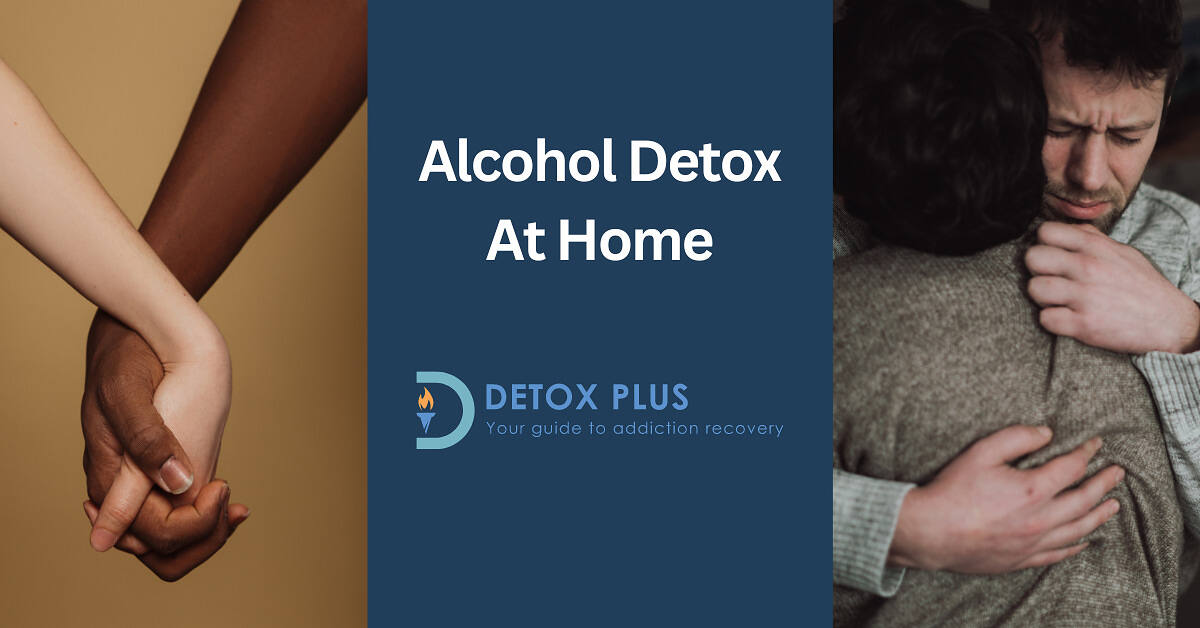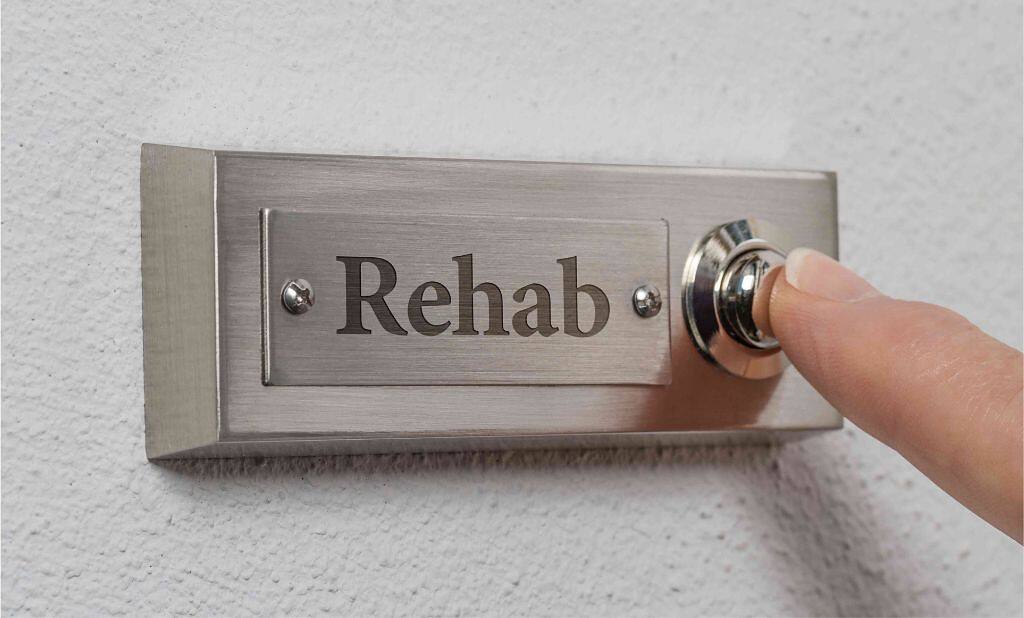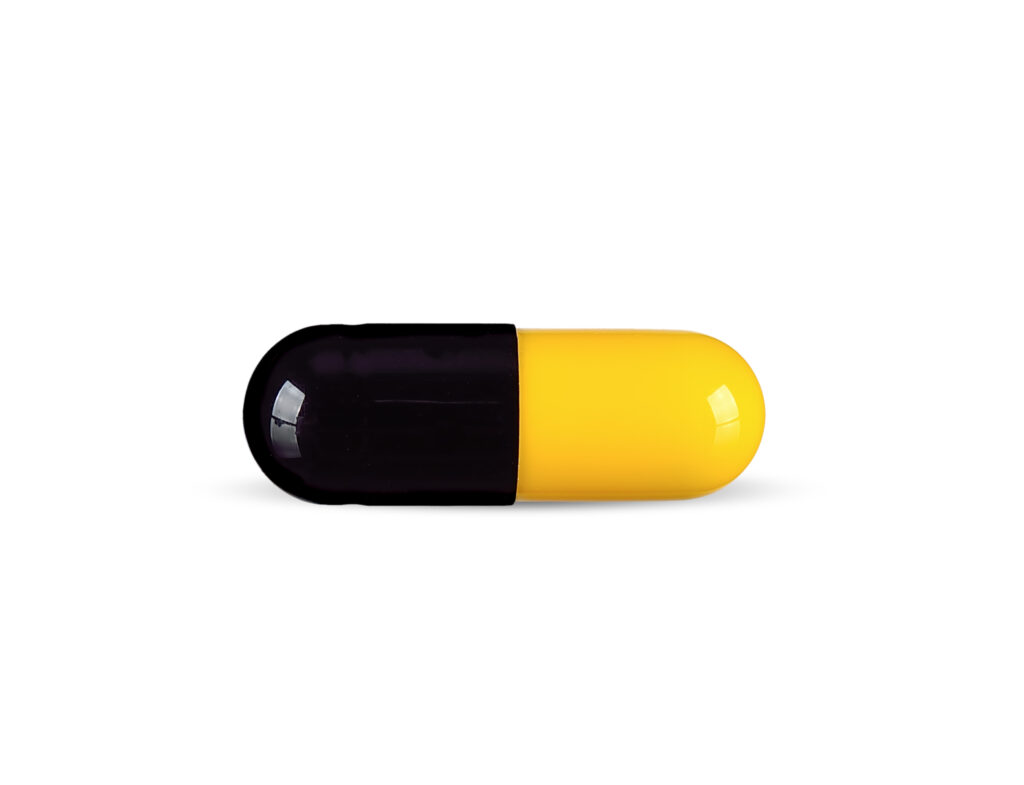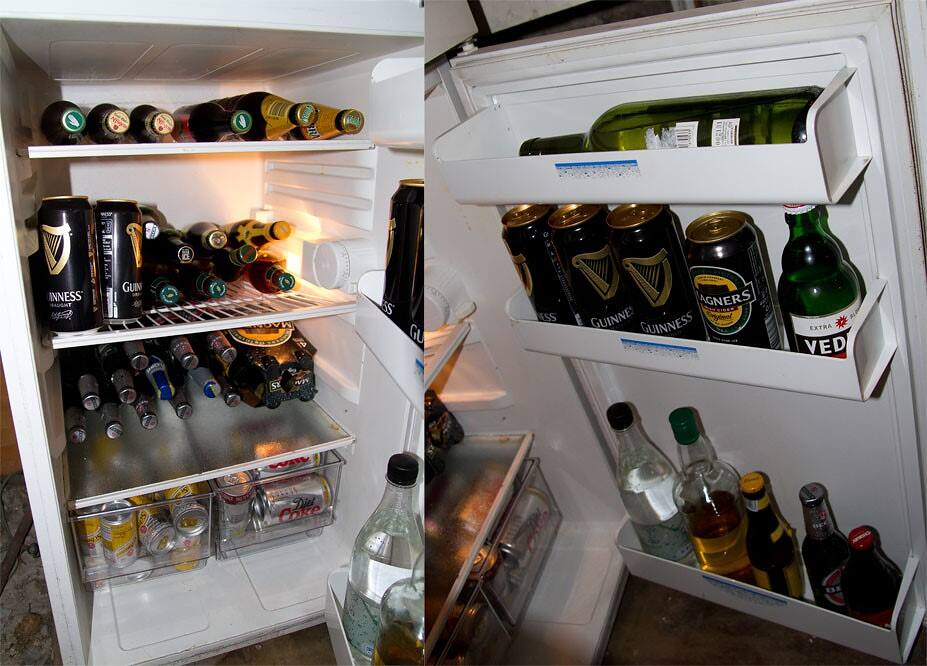Alcohol home detox offers individuals struggling with alcohol dependence a way to begin their recovery journey in a familiar environment. This process involves reducing alcohol consumption under medical supervision, allowing the body to adjust while managing withdrawal symptoms.
Home detox can be an attractive option for those with mild to moderate alcohol addiction. Medical oversight is essential to navigate the potential risks associated with alcohol withdrawal.
Not everyone is a suitable candidate for at home alcohol detoxification. This guide will help you understand who might benefit from this approach, the steps involved, and the importance of professional support throughout the process.
Whether you’re considering home detox for yourself or a loved one, we’ll provide the essential information you need to make an informed decision about this critical first step towards recovery.
Understanding Alcohol Detox

Alcohol detox is the process of eliminating alcohol from the body while managing the physical and psychological symptoms that arise during withdrawal. This crucial step is the foundation for overcoming alcohol addiction and dependence, setting the stage for a healthier lifestyle.
Detox can be undertaken at home, but it’s highly recommended to do so under medical supervision, especially for those experiencing severe symptoms. A healthcare professional can provide the necessary guidance and support to manage withdrawal symptoms effectively.
There are several types of alcohol detox:
- Medical Detox: This is the most intensive form, involving 24/7 monitoring and treatment in a medical facility. It’s ideal for individuals with severe alcohol dependence or those at risk of severe withdrawal symptoms.
- Outpatient Alcohol Detox: This less intensive option involves regular visits to a treatment centre, allowing individuals to maintain some of their daily routines while receiving professional support.
- Home Detox: The least intensive form, which involves reducing alcohol consumption at home with the support of a medical professional. This option is suitable for those with mild to moderate alcohol dependence and a stable home environment.
Understanding these options helps individuals make informed decisions about the best approach for their situation, ensuring a safer and more effective detox process.
What is Home Alcohol Detox?
Home alcohol detox is a structured approach to reducing or stopping alcohol consumption in a familiar environment, typically with medical oversight. This process allows individuals to begin their recovery journey without the need for residential treatment.
At its core, home detox aims to help people safely navigate the challenging process of alcohol withdrawal. It involves decreasing alcohol intake while managing the physical and psychological symptoms that often accompany this transition.
Medical supervision is crucial, as it ensures safety and provides necessary support throughout the detox process. Controlling how much alcohol is consumed during the detox process is essential to tapering off effectively and safely.
Who is Eligible for Home Alcohol Detox?

Home alcohol detox can be a suitable option for many individuals, but it’s not appropriate for everyone. Eligibility is determined through a thorough assessment process.
Suitable Candidates for Home Detox
Home detox may be appropriate for those with mild to moderate alcohol dependence. These individuals typically:
- Have a stable and supportive home environment
- Can engage with the medical supervision provided throughout the process
- Have a medical history that is suitable for home detoxification
- Are physically and mentally stable enough to follow the detox plan
For these individuals, home detox offers the comfort of a familiar setting while still providing necessary medical oversight.
To determine eligibility, our customers complete an assessment provided by our staff. This assessment is then reviewed by our doctor, who carefully evaluates whether the individual is suitable for home detoxification. The decision is based on a comprehensive evaluation of various factors, including the individual’s medical history, current health status, and specific circumstances.
Our doctors and counsellors provide ongoing medical supervision and support throughout the detox process, regularly checking in on the patient to ensure their safety and comfort.
It’s important to note that the suitability for home detox is a medical decision made by our doctor, considering all relevant factors of an individual’s case. This personalised approach ensures that home detox is only recommended when it’s the most appropriate and safe option for the individual.
Who Should Avoid Home Detox
Home alcohol detox is not recommended for everyone. Those who should seek inpatient or more intensive treatment include:
- Individuals with severe alcohol use disorder (AUD)
- People with a history of serious withdrawal symptoms, such as seizures or delirium tremens
- Those with significant underlying health conditions, particularly liver disease or heart problems
- Individuals with co-occurring mental health disorders that require close monitoring
For these groups, the risks associated with alcohol withdrawal are higher, and they require the constant medical supervision that an inpatient setting provides.
Risks and Complications of Home Alcohol Detox
Physical withdrawal symptoms, such as tremors and seizures, may arise if an individual has developed a physical dependence on alcohol, necessitating professional support to manage them. Being aware of these can help ensure a safer detox process.
Serious Risks
Alcohol withdrawal can lead to severe complications, including:
- Seizures: These can occur even in individuals without a history of epilepsy. The onset and severity of alcohol withdrawal symptoms can vary, with some individuals experiencing mild symptoms while others face severe complications.
- Delirium Tremens (DTs): A severe form of withdrawal characterised by confusion, hallucinations, and potentially life-threatening physical symptoms.
- Cardiac Issues: Rapid heart rate and blood pressure fluctuations can stress the cardiovascular system.
- Mental Health Deterioration: Anxiety, depression, and suicidal thoughts may intensify during withdrawal.
When to Seek Medical Attention for Alcohol Withdrawal Symptoms
It’s crucial to know when to contact your healthcare provider or seek emergency care. Be alert for:
- Severe confusion or hallucinations
- Seizures or uncontrollable shaking
- High fever
- Irregular heartbeat
- Severe vomiting or diarrhoea
- Thoughts of self-harm
If you or the person you supervise experiences any of these symptoms, don’t hesitate to seek immediate medical help.
Why Medical Supervision is Crucial
Medical oversight is essential in home alcohol detox because it:
- Helps manage withdrawal symptoms effectively
- Reduces the risk of severe complications
- Provides quick intervention if problems arise
- Offers emotional support and guidance throughout the process
Remember, while home detox can seem more comfortable, the risks of alcohol withdrawal are real. Always follow your healthcare provider’s instructions closely and never attempt to detox without proper medical guidance. Your safety is paramount in this challenging but important step towards recovery.
Creating a Supportive Environment

Creating a supportive environment is crucial for success. A nurturing and encouraging setting can significantly boost motivation and focus during the recovery journey. Here are some practical tips to help create such an environment:
- Remove Alcohol and Triggers: Clear your home of all alcohol and related items to reduce temptation and prevent relapse.
- Surround Yourself with Support: Engage with supportive family and friends who understand your goals and can offer encouragement.
- Join Support Groups: Consider joining groups like Alcoholics Anonymous or seeking online alcohol counselling to connect with others who share similar experiences.
- Stay Busy: Keep yourself occupied with hobbies and activities that you enjoy. This can help distract from cravings and provide a sense of accomplishment.
- Focus on Health: Stay hydrated and eat a balanced diet to support your body through the detox process.
A supportive environment not only helps manage withdrawal symptoms but also fosters a positive mindset, making the detox process more manageable and less daunting.
The Detox Process: Step-by-Step
Home alcohol detox is a structured process that requires careful planning and execution. Here’s a concise overview of what you can expect with Detox Plus:
Step 1: Pre-Detox Preparation
- Consult with Detox Plus for a thorough assessment and personalised detox plan
- Create a safe, comfortable environment at home, removing all alcohol and potential triggers.
- Stock up on nutritious foods, water, and any prescribed medications.
- Arrange for a support person to be present during the detox period.
Step 2: Beginning the Detox
- Follow the plan provided by your Detox Plus doctor for managing alcohol intake
- Begin taking any prescribed medications to manage withdrawal symptoms.
- Stay hydrated and try to maintain a balanced diet.
Step 3: Monitoring Symptoms
- Engage in daily check-ins with our Detox Plus counsellors, who will also facilitate communication with our doctor if needed.
- Your support person should monitor your progress, watching for any warning signs that require medical attention.
- Keep a symptom journal to track your experience and share with our Detox Plus healthcare team.
Step 4: Completing the Detox
- Follow the medication plan as prescribed by your Detox Plus doctor. Any adjustments will be made if you experience side effects or other concerns.
- Discuss plans for ongoing recovery support with our team.
- Begin transitioning to your aftercare plan, which may include outpatient treatment or other recovery programs.
Every person’s detox experience is unique. Stay in close contact with your healthcare provider throughout the process, and don’t hesitate to seek additional help if needed. While challenging, completing detox is a significant step towards reclaiming your health and well-being.
Nutrition, Hydration, and Self-Care During Detox
Proper self-care is crucial during home alcohol detox. Focusing on nutrition, hydration, and overall well-being can significantly ease the detox process and support your recovery.
Hydration and Diet
- Stay well-hydrated to help flush toxins and reduce withdrawal symptoms. Aim for at least 8 glasses of water daily.
- Eat a balanced diet rich in fruits, vegetables, lean proteins, and whole grains. These foods provide essential nutrients your body needs to heal.
- Consider foods high in B vitamins, which alcohol abuse often depletes. Leafy greens, eggs, and lean meats are good sources.
- Some individuals may benefit from NAD infusions, which can help restore cellular function. Discuss this option with your healthcare provider.
Self-Care Practices
- Engage in light exercise like walking or gentle yoga to boost mood and reduce stress.
- Practice relaxation techniques such as deep breathing or meditation to manage anxiety.
- Prioritise sleep and rest. Your body needs extra rest during detox to recover.
- Consider keeping a journal to track your progress and express your feelings.
The Role of Supplements
Certain supplements may support your recovery process:
- Multivitamins can help address nutritional deficiencies.
- Magnesium may help with sleep and muscle tension.
- Omega-3 fatty acids can support brain health.
- Combination supplements like Desistal can help you once you have completed your detox.
Always consult your healthcare provider before starting any supplement regimen, as some may interact with medications or have side effects.
Taking care of your physical and mental health during detox is not just about comfort—it’s an integral part of the recovery process. Be patient with yourself and celebrate small victories as you progress through this challenging but important phase of your journey to sobriety.
Overcoming Challenges and Setbacks

The journey through alcohol detox is fraught with challenges and setbacks, but overcoming them is a vital part of the recovery process. Here are some strategies to help navigate these obstacles:
- Stay Focused on Your Goals: Remind yourself why you decided to quit drinking and visualise the benefits of a sober life.
- Seek Support: Lean on family, friends, and support groups for encouragement and advice. Sharing your struggles can lighten the emotional load.
- Keep Busy: Engage in activities and hobbies that you enjoy. Staying occupied can help distract from alcohol cravings and provide a sense of purpose.
- Practice Relaxation Techniques: Techniques such as meditation, deep breathing, and yoga can help manage stress and anxiety during detox.
- Seek Medical Help if Needed: If withdrawal symptoms become severe, don’t hesitate to seek medical assistance. It’s crucial to prioritise your health and safety.
Setbacks are a normal part of the recovery journey. They are not failures but opportunities to learn and grow. With the right support and a resilient mindset, you can overcome these challenges and achieve long-term recovery.
Alternatives to Home Alcohol Detox

While home detox can be effective for some, it’s not suitable for everyone. Here are some alternative approaches to consider:
Residential Rehab
Residential rehab provides a more intensive, structured environment for those with severe alcohol addiction or significant health risks. It offers:
- 24/7 medical supervision
- A controlled environment free from triggers
- Comprehensive therapy and support services
- Peer support from others in recovery
This option is particularly beneficial for individuals with a history of severe withdrawal symptoms or those who have tried and struggled with less intensive approaches.
Outpatient Programs
Outpatient detox and recovery programs offer a middle ground between home detox and residential rehab. They provide:
- Regular medical check-ins and support
- Structured treatment sessions
- Flexibility to maintain work or family commitments
- A gradual transition back to daily life
These programs can be ideal for individuals with moderate addiction who have a stable home environment but need more support than home detox offers.
Community Support Groups
While not a replacement for medical detox, community support groups play a crucial role in long-term recovery:
- Alcoholics Anonymous (AA) and SMART Recovery offer peer support and proven strategies for maintaining sobriety
- They provide a sense of community and understanding
- Regular meetings help reinforce the commitment to recovery
- Many find the accountability and shared experiences invaluable
Support groups can be an excellent complement to other treatment options or a standalone resource for those with milder alcohol issues.
There’s no one-size-fits-all approach to alcohol recovery. The best option depends on your individual circumstances, the severity of your addiction, and your overall health. Always consult with a healthcare professional to determine the most appropriate path for your recovery journey.
Conclusion
Home alcohol detox offers a promising path to recovery for many individuals struggling with alcohol dependence. It provides a more affordable and comfortable alternative to inpatient treatment, allowing people to begin their journey to sobriety in familiar surroundings.
Home detox is not suitable for everyone. It’s most appropriate for those with mild to moderate alcohol dependence who have a stable home environment and access to medical supervision. For individuals with severe addiction or complex health issues, residential treatment may be the safer option.
Seeking help is a sign of strength, not weakness. With the right support and determination, recovery is possible. Take that first step towards a healthier, alcohol-free life today – your future self will thank you for it.



